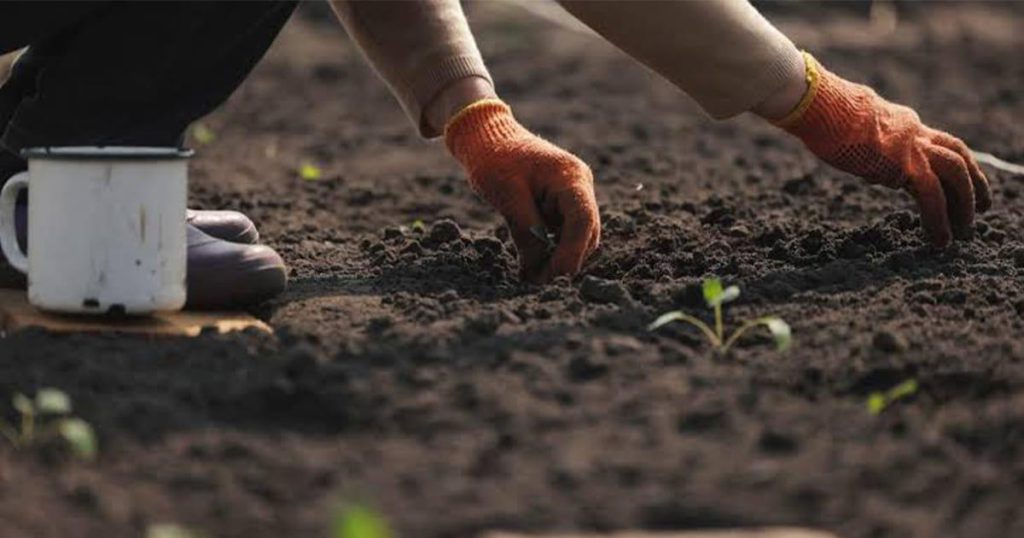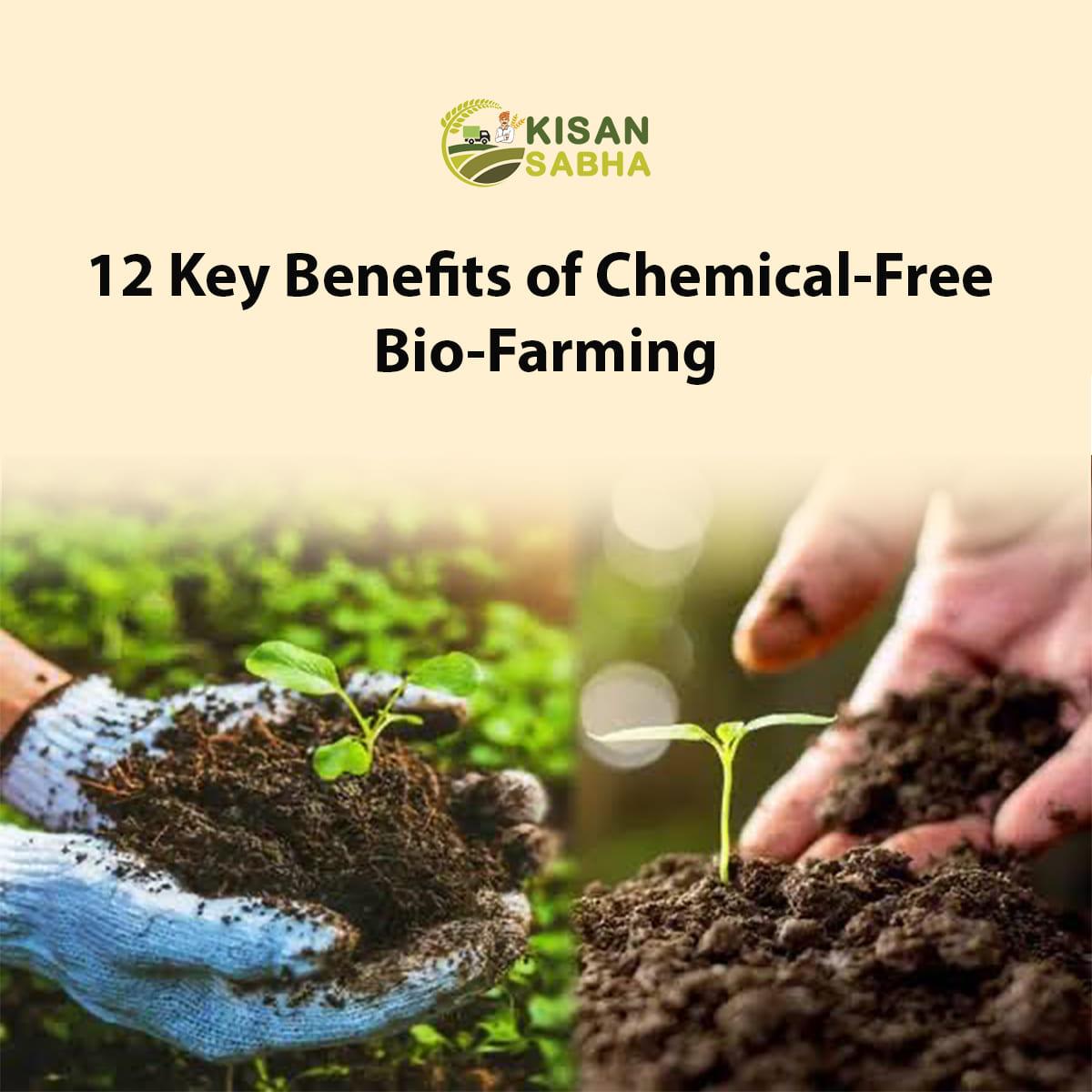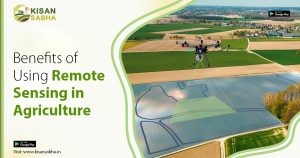In a world increasingly conscious of environmental impact and the health implications of agricultural practices, chemical-free bio-farming emerges as a beacon of sustainable agriculture. This innovative approach seeks to harness the power of nature, relying on biological processes and organic inputs to cultivate crops. Let’s explore the manifold benefits of chemical-free bio-farming and why it’s considered a transformative force in agriculture.

Benefits of Chemical-Free Bio-Farming
Environmental Preservation
One of the fundamental pillars of chemical-free bio-farming is its commitment to environmental preservation. By eliminating synthetic pesticides and fertilizers, this approach minimizes soil and water contamination. It promotes biodiversity, preserving the delicate balance of ecosystems. The absence of harmful chemicals reduces the carbon footprint associated with traditional farming, contributing to a healthier planet.
Soil Health Revitalization
Chemical-free bio-farming prioritizes soil health as the cornerstone of agricultural productivity. Instead of relying on chemical inputs that can degrade soil quality over time, bio-farming methods focus on enhancing soil fertility naturally. Practices like crop rotation, cover cropping, and composting improve soil structure, water retention, and nutrient content, ensuring the longevity of agricultural land.
Protection of Beneficial Insects
Unlike conventional farming which often employs broad-spectrum pesticides, chemical-free bio-farming seeks to protect beneficial insects that play a crucial role in maintaining ecological balance. These insects, such as pollinators and natural predators of pests, thrive in biodiverse environments fostered by bio-farming practices. This not only preserves natural ecosystems but also supports sustainable food production.
Nutrient-rich and Safer Produce
From a consumer standpoint, the shift to chemical-free bio-farming translates to nutrient-rich and safer produce. The absence of synthetic pesticides and fertilizers means that crops accumulate a higher concentration of essential nutrients. Additionally, consumers benefit from reduced exposure to potentially harmful residues, promoting a healthier lifestyle.
Also Read:- 4 Key Practices for a Flourishing Wheat Harvest
Promotion of Crop Diversity
Chemical-free bio-farming encourages crop diversity, steering away from the mono-cropping practices often associated with conventional agriculture. Planting a variety of crops helps break the cycle of pests and diseases, reducing the need for chemical interventions. This diversity not only safeguards against crop failures but also contributes to a more resilient and sustainable agricultural system.

Resilience to Climate Change
As climate change poses new challenges to agriculture, the resilience embedded in chemical-free bio-farming practices becomes increasingly valuable. Diverse crops and healthy soils have a higher capacity to adapt to changing climatic conditions. This resilience helps farmers mitigate the impacts of extreme weather events, ensuring more stable yields in the face of uncertainty.
Empowerment of Local Communities
Chemical-free bio-farming often involves local, community-based initiatives. By embracing traditional and indigenous knowledge, communities can develop sustainable agricultural practices that align with their unique ecosystems. This empowerment fosters self-reliance, reduces dependence on external inputs, and contributes to the economic well-being of local farmers.
Reduction in Water Usage
Conventional agriculture, reliant on chemical inputs, often demands significant water usage. Chemical-free bio-farming, with its emphasis on soil health and water retention, contributes to water conservation. Healthy soils can better absorb and retain water, reducing the overall demand for irrigation. This is especially crucial in regions facing water scarcity.
Enhanced Soil Microbial Activity
Chemical-free bio-farming recognizes the importance of the unseen world beneath our feet – the soil microbiome. Synthetic chemicals can disrupt the delicate balance of microorganisms in the soil. Bio-farming practices promote beneficial microbial activity, fostering a symbiotic relationship between plants and the soil microbiota. This, in turn, enhances nutrient cycling and plant resilience.
Cost-Effectiveness for Farmers
While transitioning to chemical-free bio-farming may require initial adjustments, it often proves to be cost-effective in the long run. Farmers can produce their organic inputs through practices like composting, reducing the need for expensive external inputs. Moreover, the improvement in soil health and reduced dependence on external inputs can enhance the overall economic sustainability of farming operations.
Market Demand and Premium Prices
With an increasing consumer demand for organic and sustainably produced food, chemical-free bio-farming aligns perfectly with market trends. Farmers adopting these practices often find a niche market willing to pay premium prices for organic produce. This not only benefits individual farmers but also contributes to the growth of the organic farming sector.
Compliance with Organic Certification Standards
Chemical-free bio-farming aligns with the stringent standards set by organic certifications. Farmers adhering to these standards gain access to organic markets and certification-related benefits. The certification process also ensures transparency and builds trust with consumers who seek verified, genuinely chemical-free produce.
Conclusion
Chemical-free bio-farming is more than a farming method; it’s a philosophy that recognizes the intricate relationships between soil, plants, and the environment. As the world grapples with the challenges of a changing climate and a growing population, the benefits of chemical-free bio-farming become increasingly evident. By prioritizing ecological balance, soil health, and the well-being of local communities, this sustainable farming approach offers a promising path toward a resilient and nourished future. As consumers, farmers, and policymakers alike embrace the transformative power of chemical-free bio-farming, the agricultural landscape stands poised for positive change.





